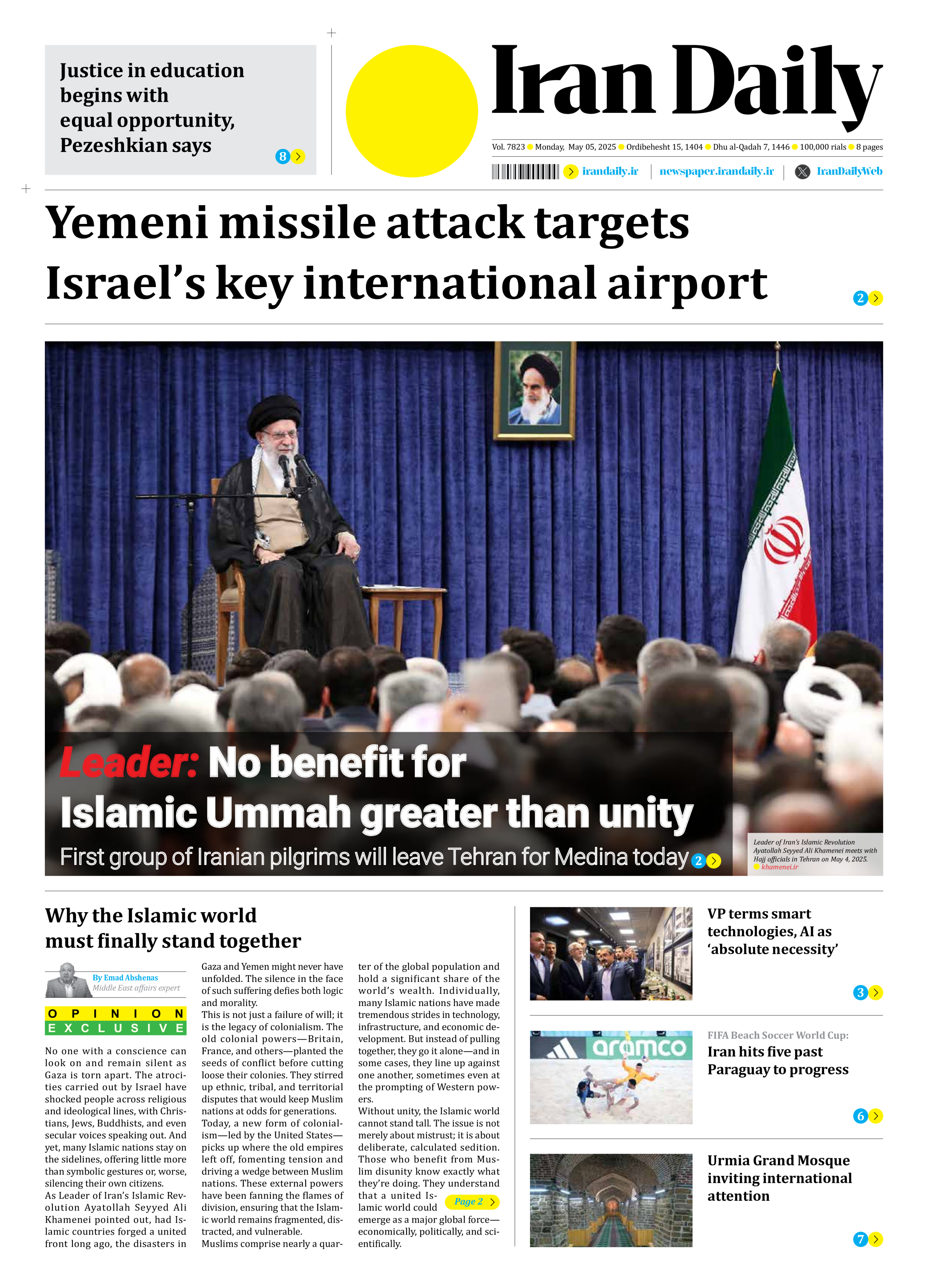
Why the Islamic world must finally stand together
By Emad Abshenas
Middle East affairs expert
No one with a conscience can look on and remain silent as Gaza is torn apart. The atrocities carried out by Israel have shocked people across religious and ideological lines, with Christians, Jews, Buddhists, and even secular voices speaking out. And yet, many Islamic nations stay on the sidelines, offering little more than symbolic gestures or, worse, silencing their own citizens.
As Leader of Iran’s Islamic Revolution Ayatollah Seyyed Ali Khamenei pointed out, had Islamic countries forged a united front long ago, the disasters in Gaza and Yemen might never have unfolded. The silence in the face of such suffering defies both logic and morality.
This is not just a failure of will; it is the legacy of colonialism. The old colonial powers—Britain, France, and others—planted the seeds of conflict before cutting loose their colonies. They stirred up ethnic, tribal, and territorial disputes that would keep Muslim nations at odds for generations.
Today, a new form of colonialism—led by the United States—picks up where the old empires left off, fomenting tension and driving a wedge between Muslim nations. These external powers have been fanning the flames of division, ensuring that the Islamic world remains fragmented, distracted, and vulnerable.
Muslims comprise nearly a quarter of the global population and hold a significant share of the world’s wealth. Individually, many Islamic nations have made tremendous strides in technology, infrastructure, and economic development. But instead of pulling together, they go it alone—and in some cases, they line up against one another, sometimes even at the prompting of Western powers.
Without unity, the Islamic world cannot stand tall. The issue is not merely about mistrust; it is about deliberate, calculated sedition. Those who benefit from Muslim disunity know exactly what they’re doing. They understand that a united Islamic world could emerge as a major global force—economically, politically, and scientifically.
Page 2







